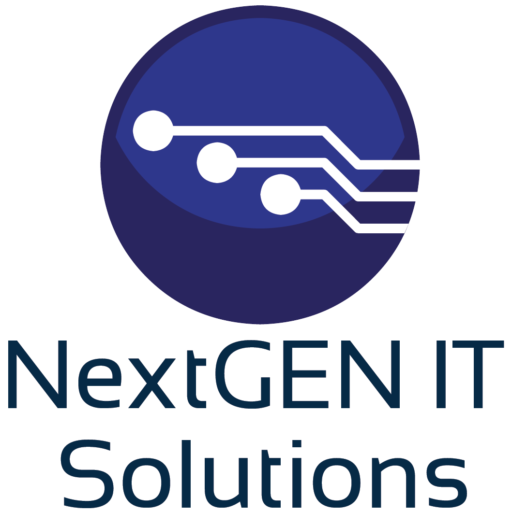The Future of Work: How Pittsburgh Small Businesses Can Embrace Remote Work Solutions

In the dynamic landscape of the 21st century, the concept of work has undergone a radical transformation, especially in the wake of global events that pushed remote work from a perk to a necessity. Pittsburgh, with its rich industrial history and burgeoning tech scene, is at the forefront of this shift, presenting small businesses with both challenges and opportunities. This blog post delves into the impact of remote work on IT infrastructure and offers practical advice on establishing secure, efficient remote work environments tailored to the unique needs of Pittsburgh small businesses.
Embracing the Shift to Remote Work
The pivot to remote work isn’t just a temporary adjustment but a fundamental shift in the work paradigm. For Pittsburgh, a city that prides itself on innovation and adaptability, this transition offers a chance to redefine the workplace. Small businesses, in particular, stand to gain from the flexibility, reduced overhead costs, and access to a broader talent pool that remote work provides. However, this shift also necessitates a reevaluation of IT infrastructure to ensure that operations remain smooth and secure.
Assessing IT Infrastructure Needs
The first step towards embracing remote work is assessing your current IT infrastructure. Pittsburgh small businesses need to consider their capacity to support remote work, including internet bandwidth, VPN access, and cloud services. The goal is to ensure that employees have seamless access to necessary resources without compromising on security or efficiency.
Secure, Efficient Remote Work Environments
Creating a secure and efficient remote work environment involves a multifaceted approach, focusing on connectivity, collaboration, and cybersecurity. Here’s how Pittsburgh businesses can navigate these aspects:
Connectivity: The Backbone of Remote Work
- High-Speed Internet: Encourage employees to have or upgrade to high-speed internet connections. Consider offering stipends to cover the cost, ensuring that connectivity issues don’t hamper productivity.
- Virtual Private Networks (VPNs): Implement VPNs to provide secure access to your network. VPNs encrypt internet traffic, safeguarding data from cyber threats.
- Cloud Services: Leverage cloud computing for scalable and flexible access to applications and storage. Cloud services like Microsoft Azure or Amazon Web Services offer robust solutions tailored for businesses of all sizes.
Collaboration Tools: Keeping Teams Connected
- Unified Communication Platforms: Adopt tools like Slack, Microsoft Teams, or Zoom to facilitate communication and collaboration. These platforms offer chat, video conferencing, and file sharing, making remote work more interactive and engaging.
- Project Management Software: Utilize project management tools like Asana, Trello, or Monday.com to keep projects on track. These applications help in assigning tasks, setting deadlines, and monitoring progress, ensuring that everyone stays aligned.
- Cloud-Based Document Sharing: Implement Google Workspace or Microsoft 365 for cloud-based document sharing and collaboration. These platforms allow real-time editing, feedback, and version control, streamlining the document management process.
Cybersecurity: A Non-Negotiable Priority
- Comprehensive Security Solutions: Invest in comprehensive security solutions that include antivirus software, firewalls, and endpoint protection. Companies like NextGEN IT Solutions offer tailored security packages that cater to the specific needs of small businesses.
- Multi-Factor Authentication (MFA): Implement MFA to add an extra layer of security to your systems. MFA requires users to provide two or more verification factors to gain access, significantly reducing the risk of unauthorized access.
- Regular Training and Awareness: Conduct regular cybersecurity training and awareness programs. Educate your team on the importance of strong passwords, recognizing phishing attempts, and securing their home networks.
Leveraging Local Expertise
Pittsburgh’s small businesses have the advantage of tapping into a vibrant tech community for support. Engaging with local MSPs (Managed Service Providers) and IT consultants can provide you with insights and solutions tailored to your specific needs. Local providers understand the Pittsburgh market and can offer personalized service that national providers may not match.
Future-Proofing Your Business
As you adapt to remote work, it’s also essential to think about the future. This means staying agile, continuously evaluating your IT infrastructure, and being ready to adopt new technologies. Areas like artificial intelligence, machine learning, and blockchain are evolving rapidly and can offer competitive advantages in efficiency, security, and innovation.
The future of work for Pittsburgh small businesses lies in embracing remote work solutions. By assessing and upgrading IT infrastructure, focusing on secure and efficient remote work environments, and leveraging local expertise, businesses can navigate this shift successfully. The transformation to remote work is not just about overcoming challenges; it’s an opportunity to innovate, expand, and thrive in the new normal. As we move forward, the flexibility, resilience, and forward-thinking that define Pittsburgh’s small businesses will be the key drivers of success in the evolving landscape of work.




